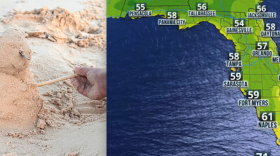Syrian tanks and gunships are attacking neighborhoods in towns and cities around the country that have been hotbeds of anti-government protest, as the government pushes ahead with what's being called a Ramadan offensive.
Activists say the latest, most grisly trend is to detain protesters, torture them to death, then release their bodies for all to see. Activists say of the 70 deaths in detention they've documented so far, nearly 40 have been in the central city of Homs.
In one case, about two weeks ago, two men in Homs had just finished praying at the mosque. One stopped his car and offered another a ride. Witnesses told activists that security forces surrounded the car, ordered the men out and beat them on the head with the butts of rifles. The men were then taken to the local intelligence headquarters.
The body of the first man was returned to his family 10 days later, with cuts and bruises and signs of a beating. The death sparked a massive protest that was caught on video by residents in Homs.
Four days later, the second body was returned to the victim's family. Images of the body show what look like bullet holes and massive bruising. The feet are nearly swollen beyond recognition.
For Some, 'The Fear Is Working'
Omar Idlibi, an activist who documents cases like these in Homs, says authorities aren't using torture to get information anymore. They're using it strictly to promote fear.
"In our culture, when somebody dies, especially when he dies a martyr, we go and see him before he is buried," Idlibi says. "Of course most people, when they see these bodies, get even more angry and want to protest even more."
"But for some," he says, "I have to tell you, the fear is working."
Another center of protest is Hama, where hundreds of people were killed as security forces stormed the city at the beginning of Ramadan.
One activist, who didn't want to give his name for fear of being detained, says he and his friend were on a mission to film the Syrian tanks. He got out of the car. His friend was stopped at a checkpoint.
"They took him, and after that they took three others of my team," he says.
The activist recently got word that his friends are being held at the main intelligence office. He is terrified they'll be killed, namely because they carried satellite phones, which are used to share information with the international media.
The activist has gone into hiding out of fear he will be tracked down.
"I don't know what to do, but I still must hide," he says. "I stopped some of my activities lest I be known."
Detention Still Haunts One Man
Ali Abu Dehn says he knows all too well what these detainees are going through.
A Lebanese citizen, he says he was visiting his wife's relatives in Syria in 1987 when police came to the door and said there was a problem with his car registration. They told him to come down to the station.
"And even they told my wife, just only for five minutes, he will have a cup of coffee, then we will leave him, we will bring him back by ourselves," Abu Dehn says. "And that cup of coffee? You know it kept boiling for 13 years, and I didn't drink it."
For 13 years, Abu Dehn was held in prison and accused of spying for Israel. Five of these years were spent in a kind of concentration camp, where he was beaten, humiliated, hung from meat hooks, and nearly starved to death.
Even though he's free, he says the detention still haunts him. He thinks about it every day. But Abu Dehn says he actually can imagine worse.
"What I faced is nothing," he says, "nothing compared to what they are facing now."
Copyright 2023 NPR. To see more, visit https://www.npr.org.









